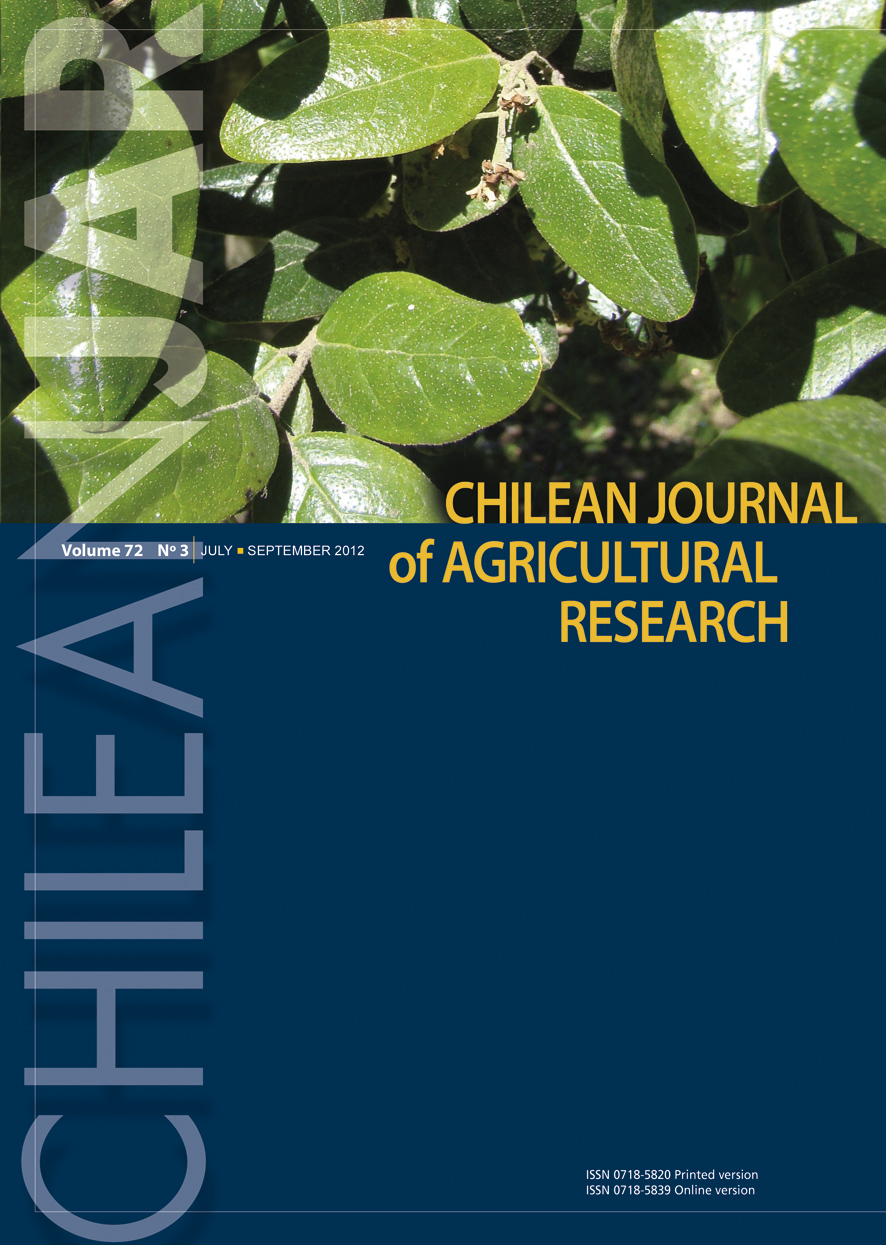
|
Chilean Journal of Agricultural Research
Instituto de Investigaciones Agropecuarias, INIA
ISSN: 0718-5820
EISSN: 0718-5820
Vol. 79, No. 3, 2019, pp. 493-498
|
 Bioline Code: cj19050
Bioline Code: cj19050
Full paper language: English
Document type: Note
Document available free of charge
|
|
|
Chilean Journal of Agricultural Research, Vol. 79, No. 3, 2019, pp. 493-498
| en |
Identification of a phytoplasma associated with witches’ broom symptoms in calafate ( Berberis microphylla  G. Forst.) G. Forst.)
Madariaga, Mónica & Ramírez, Isabel
Abstract
Berberis microphylla G. Forst. (“calafate”) is a native berry grown in the Patagonian area of Chile and Argentina. The calafate fruit have important commercial projection, given that contains antioxidant characteristics with high levels of phenolic compounds and anthocyanins. Recently, wild growth of calafate present in Region of Magallanes y la Antártica Chilena has been affected by symptoms of witch’s broom, which is associated to infections caused by phytoplasmas. To determine the presence of phytoplasmas in calafate plants affected by these symptoms, symptomatic and asymptomatic samples were analyzed. To identify the phytopathogen, nested polymerase chain reaction (nested-PCR) was used with three pairs of primers (P1/P7, R16mF2/mR1, R16F2n/R2); sequencing of the fragments obtained from PCR and an in silico restriction analysis was carried out on the obtained genomic sequences. Results from nested-PCR showed an expected band of 1.2 kb only in the samples with symptoms. The nucleotide sequence obtained from the amplified DNA fragment had similarity to 99% of other phytoplasmas present in the National Center for Biotechnology Information
(NCBI) database, according to a basic local alignment search tool (BLAST) analysis. Restriction analysis indicated that the amplified DNA fragment corresponded to a phytoplasma from the 16SrXIII-f group. In conclusion, the symptoms
of witch’s broom present in the analyzed calafate plants from Magallanes region signal the presence of the phytoplasma “Candidatus Phytoplasma hispanicum” pertaining to the group 16SrXIII-F.
Keywords
Calafate; phytoplasmas; witch’s broom.
|
| |
© Copyright 2019 - Chilean Journal of Agricultural Research
Alternative site location: http://www.inia.cl
|
|
